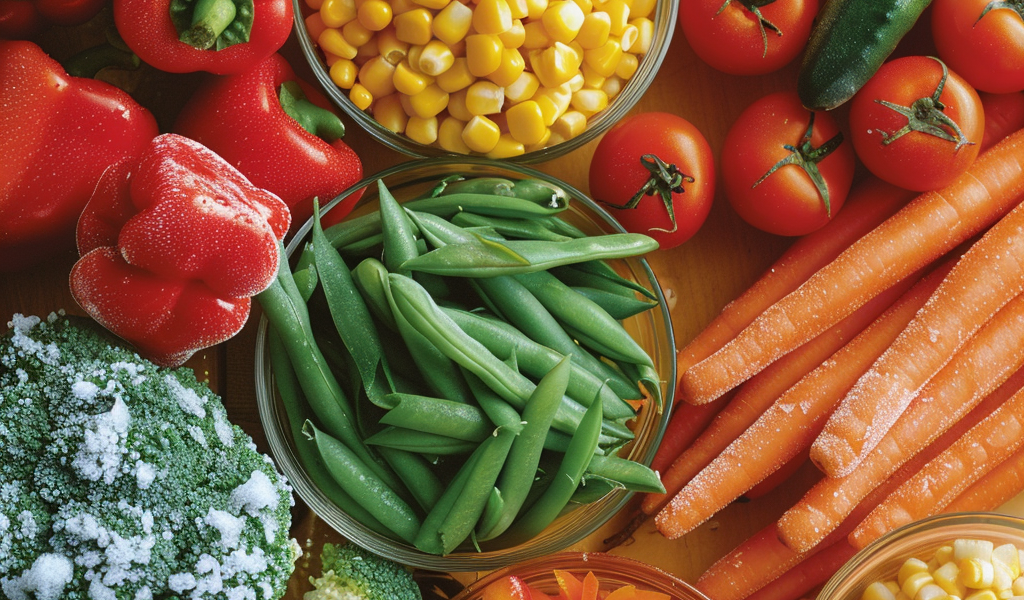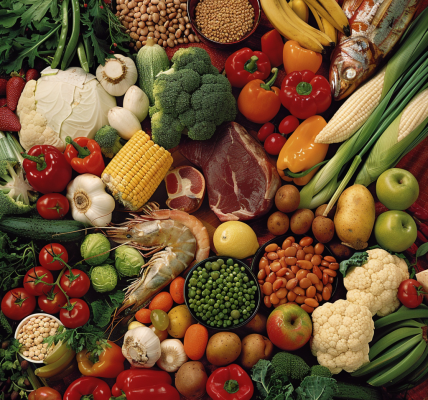When it comes to nutrition, vegetables are a cornerstone of a healthy diet. Renowned dietitian Barbara Intermill emphasizes the importance of consuming fresh vegetables whenever possible. However, the nutritional integrity of vegetables can be compromised if they are overcooked or stored improperly in the refrigerator. For those looking for alternatives, frozen and canned vegetables can be excellent options. These varieties are typically harvested at their peak ripeness and processed quickly, which helps to retain their essential nutrients.
The 2020–2025 Dietary Guidelines for Americans advocate for a diverse intake of vegetables, promoting not only fresh options but also frozen and canned varieties. This inclusivity acknowledges that frozen and canned vegetables can be lifesavers in emergencies when fresh produce may not be accessible.
A common concern regarding canned vegetables is their sodium content. Contrary to popular belief, sodium is not used as a preservative in canned foods; rather, the preservation process relies on heat and cooling methods. For those monitoring their sodium intake, it is advisable to seek out lower-sodium options. Additionally, draining and rinsing canned beans and vegetables can reduce sodium levels by over 40%.
Interestingly, the Centers for Disease Control and Prevention (CDC) highlights that the primary sources of sodium in the American diet include pizza, cold cuts, cured meats, bread, rolls, burgers, and sandwiches, while canned foods do not rank among the top contributors.
Beyond sodium, the nutrient profile of canned vegetables is worth discussing. Certain nutrients, such as lycopene, the beneficial red pigment found in tomatoes, and beta carotene, which converts to vitamin A in the body, can actually become more bioavailable through the heat processing involved in canning. This means that canned tomatoes may offer enhanced health benefits compared to their fresh counterparts.
However, vitamin C presents a different challenge. As one of the least stable vitamins, vitamin C is highly susceptible to degradation through heat and exposure to air. Fortunately, recent advancements in food technology have made it possible to preserve the vitamin C content in various canned foods, as noted in a 2021 review published in the journal Antioxidants.
In summary, while fresh vegetables are undoubtedly valuable, frozen and canned options provide a practical and nutritious alternative that should not be overlooked. The key is to be mindful of preparation methods and to choose lower-sodium options when necessary. By incorporating a variety of vegetable sources into our diets, we can enhance our overall health and well-being.
As we explore the realm of canned foods, it’s fascinating to uncover some lesser-known facts. For instance, canned foods can often be stored for extended periods without losing their nutritional value, making them a convenient pantry staple. Additionally, the canning process can help to lock in flavors, allowing for delicious meals even when fresh ingredients are not available.
For those looking to reduce their dietary salt intake, there are effective strategies to gradually cut down on sodium consumption. This can be achieved by becoming more aware of the sodium content in packaged foods and opting for fresh or minimally processed ingredients whenever possible.
Moreover, the dialogue surrounding processed and ultra-processed foods has gained traction in recent years. Understanding the differences between these categories can empower consumers to make informed choices about their diets. Processed foods, which have undergone some form of alteration, can still retain nutritional value, while ultra-processed foods often contain additives and preservatives that may detract from their health benefits.
In the realm of public health, recent studies indicate that Americans over the age of 40 could potentially extend their lifespan by an additional five years if they engaged in physical activity comparable to the top 25% of the population. This highlights the importance of lifestyle choices in promoting longevity and overall health.
Looking ahead, the future of health in the United States presents challenges, with projections suggesting that nearly 260 million people may be classified as overweight or obese by 2050 if current trends continue. This underscores the urgency for immediate action to promote healthier eating habits and active lifestyles.
In conclusion, understanding the nutritional landscape of vegetables, including fresh, frozen, and canned varieties, is crucial for making informed dietary choices. By embracing a diverse array of vegetables and being mindful of sodium intake, individuals can take significant steps toward enhancing their health and well-being.





